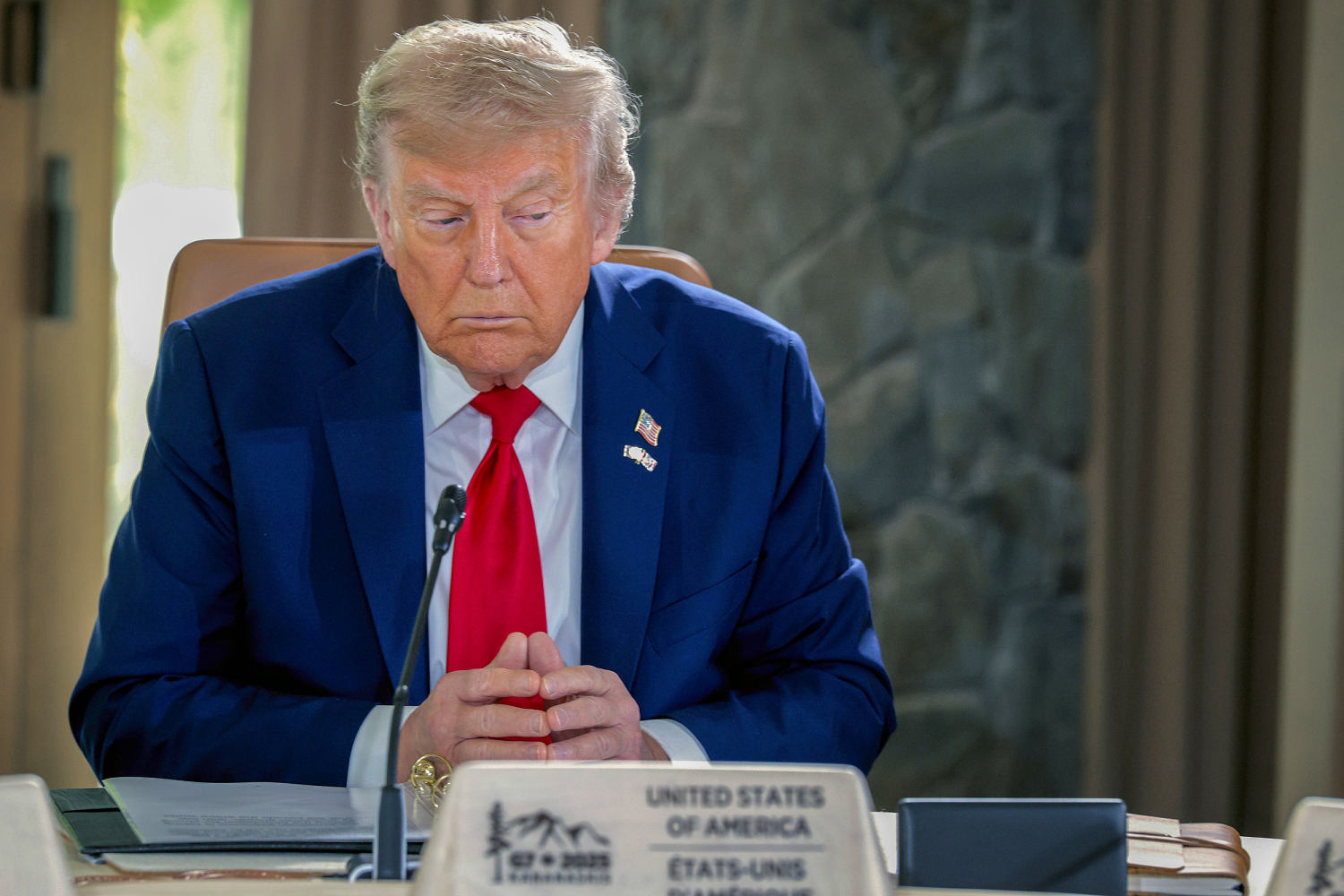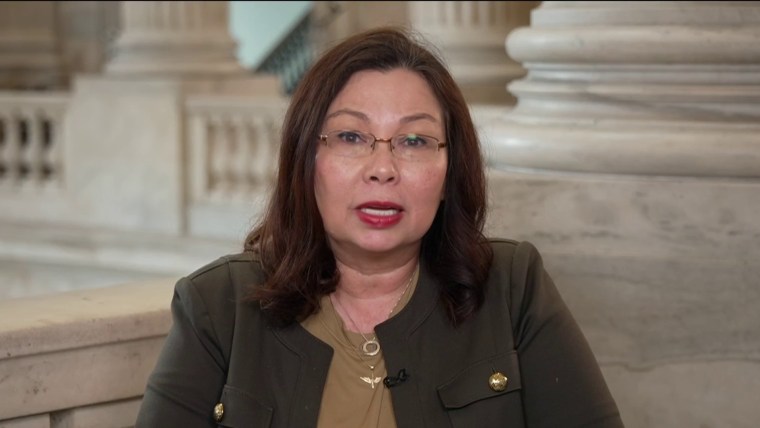The political tug-of-war at the center of Trump’s Iran decision: From the Politics Desk


Welcome to the online version of From the Politics Desk, an evening newsletter that brings you the NBC News Politics team’s latest reporting and analysis from the White House, Capitol Hill and the campaign trail.
In today’s edition, Andrea Mitchell breaks down the critical decision facing President Donald Trump on the Israel-Iran conflict. Plus, Lawrence Hurley examines the questions that a major Supreme Court ruling on transgender rights left unanswered.
Programming note: We’re taking a break for Juneteenth tomorrow and will be back in your inbox on Friday, June 20.
Sign up to receive this newsletter in your inbox every weekday here.
— Adam Wollner
The political tug-of-war at the center of Trump’s Iran decision
By Andrea Mitchell
As President Donald Trump considers whether the U.S. will strike Iran — likely the most important decision of his second term, one that could remake the landscape of the Middle East — allies and adversaries are taking sides, both at home and abroad.
“I may do it. I may not do it,” Trump told reporters outside the White House earlier today. “Nobody knows what I’m going to do.”
The president openly admired the effectiveness of Israel’s initial airstrikes against Iran, even though Israeli Prime Minister Benjamin Netanyahu clearly launched his strikes to interrupt Trump’s nuclear diplomacy with Tehran.
But after being rebuffed in April when he sought Trump’s approval for a joint operation against Iran’s nuclear program, Netanyahu could be on the verge of persuading an American president to provide the B-2s to deliver the 30,000-pound “bunker buster” bombs capable of penetrating the concrete fortress believed to conceal Tehran’s most dangerous stockpile of nearly-weapons-grade uranium, based on new Israeli intelligence. Sen. Mark Warner, D-Va., the vice chair of the Senate Intelligence Committee, said on MSNBC today that conflicts with a briefing to Congress this week that the U.S. intelligence has not changed: Iran has not decided to build a nuclear weapon.
Israel’s argument is that it’s now or never. It has decapitated two of Iran’s proxies — Hezbollah and Hamas — and toppled the Assad regime in Syria, and its retaliatory strikes last year eliminated many of Iran’s air defenses. Israel’s air force could damage Iran’s above-ground nuclear sites and missile bases if it struck now, before Iran repairs its defenses, but can’t eliminate the nuclear threat without U.S. bombs and bombers to reach the most critical underground facility.
That has created a political tug-of-war for the heart and mind of Trump, who has publicly yearned for the Nobel Prize, seeing himself as a peacemaker who could bring Iran back into the community of non-terrorist nations and avoid another “forever war.” Fighting that vision is his competing impulse to join Israel in eliminating the nuclear threat once and for all. And Tehran’s leaders clearly misjudged how patient Trump would be with their refusal to compromise in the negotiations.
Russian President Vladimir Putin remains on the sidelines, preoccupied with his own war. Jordan’s King Abdullah II and French President Emmanuel Macron strongly oppose U.S. involvement. Trump has been consulting Saudi Crown Prince Mohammed bin Salman, the Gulf’s most influential leader.
At home, the MAGA base is divided, with Sen. Lindsey Graham, R-S.C., leading the hawks and a growing cohort of Republican isolationists — even in Trump’s Cabinet — opposed. Most prominently, Director of National Intelligence Tulsi Gabbard posted a highly produced anti-war video on her official X account, reportedly infuriating her boss.
Critics worry about unintended consequences of military action, repeating former Secretary of State Colin Powell’s rueful warning before the U.S. war in Iraq. It’s like the Pottery Barn rule: If you break it, you own it.
Catch up on our latest reporting on the Israel-Iran conflict:
Amid escalating global tensions, Trump struggles to be a ‘peacemaker,’ by Peter Nicholas, Peter Alexander, Jonathan Allen and Dan De Luce
U.S.-backed regime change has a checkered past — Iran may be no different, by Alexander Smith
Will Israel’s airstrikes cause the collapse of the Iranian regime?, by Dan De Luce and Alexander Smith
Tucker Carlson clashes with Sen. Ted Cruz: ‘You don’t know anything about Iran,’ by Megan Lebowitz
Supreme Court ruling on transgender youth medical care leaves broader legal questions unresolved
By Lawrence Hurley
The Supreme Court ruling that upheld a Tennessee law banning certain care for transgender youth left various legal questions open, even as other laws aimed at people based on gender identity, including those involving sports and military-service bans, head toward the justices.
That means that even though transgender rights activists face a setback, the ruling does not control how other cases will ultimately turn out.
“This decision casts little if any light on how a majority of justices will analyze or rule on other issues,” said Shannon Minter, a lawyer at the National Center for LGBTQ Rights.
Most notably, the court, which has a 6-3 conservative majority, did not address the key issue of whether such laws should automatically be reviewed by courts with a more skeptical eye, an approach known as “heightened scrutiny.” Practically, that would mean laws about transgender people would have to clear a higher legal bar to be upheld.
The justices skipped answering that question because the court found that Tennessee’s law banning gender transition care for minors did not discriminate against transgender people at all.
But other cases are likely to raise that issue more directly, meaning close attention will be paid to what the justices said in the various written opinions, as well as what they did not say.
🗞️ Today’s other top stories
- ↔️ Holding the line: The Federal Reserve left interest rates at their current levels as the central bank continued to assess the impact of Trump’s tariffs on the U.S. economy. Read more →
- ⚖️ SCOTUS watch: The Supreme Court rejected a challenge to the Nuclear Regulatory Commission’s authority to approve a facility in Texas to store spent fuel. Read more →
- 💉 New sheriff in town: Health Secretary Robert F. Kennedy Jr. has ushered in appointees to a federal vaccine advisory panel who have expressed skepticism about the value and safety of vaccines. Read more →
- 🤔 Regrets, they have a few: Most of the seven Senate Democrats who voted to confirm Kristi Noem as secretary of the Department of Homeland Security are now critical of her performance, with some saying they’d like a do-over. Read more →
- 📊 Survey says: Americans are divided on their views of artificial intelligence, with no meaningful differences based on age and partisanship, according to the NBC News Decision Desk Poll. The country’s attitudes about AI today mirror poll answers about the rise of the internet in the ‘90s.
- 🔵 2026 watch: Bridget Brink, the former U.S. ambassador to Ukraine, announced she is running for Congress as a Democrat for a competitive Michigan House seat that Republicans flipped in 2024. Read more →
- 🗳️ About last night: Democratic state Sen. Ghazala Hashmi won her party’s nomination for lieutenant governor of Virginia in a tight race against a fellow state senator and a former Richmond mayor. Read more →
That’s all From the Politics Desk for now. Today’s newsletter was compiled by Adam Wollner and Dylan Ebs.
If you have feedback — likes or dislikes — email us at politicsnewsletter@nbcuni.com
And if you’re a fan, please share with everyone and anyone. They can sign up here.




